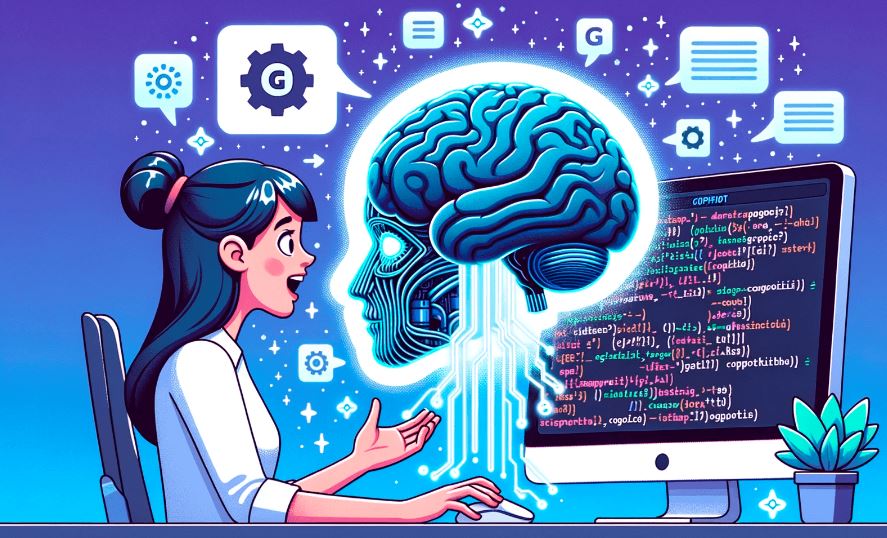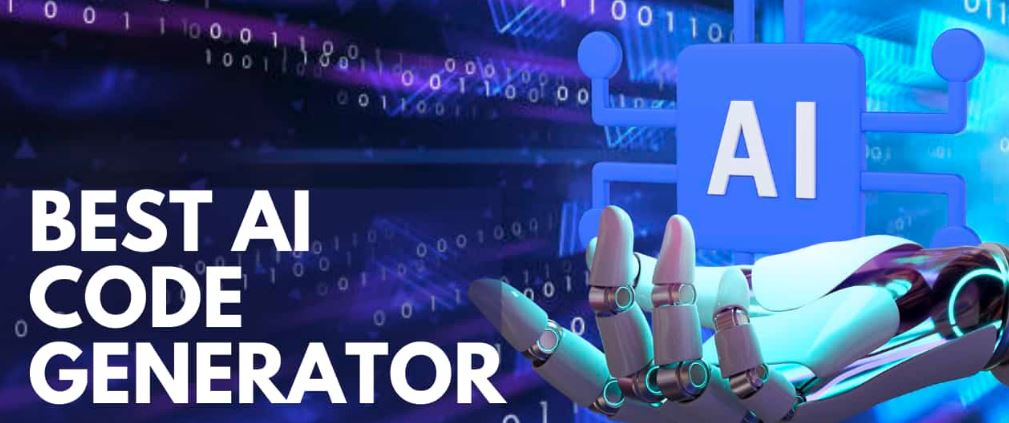Introduction
AI-driven code refactoring tools have emerged as essential components of modern software development. These tools use artificial intelligence and machine learning algorithms to optimize, clean, and improve the readability, structure, and efficiency of code. By automating the refactoring process, developers can save time, minimize errors, and improve code quality. In this article, we’ll explore the current landscape of AI-driven code refactoring tools, their benefits, and how they are shaping the future of software development in 2024.
What is Code Refactoring?
Code refactoring is the process of restructuring existing computer code without changing its external behavior. it’s a Automatic code optimization tools. It improves the design, structure, and implementation of the code, making it easier to read, maintain, and extend. Refactoring is vital for large codebases, where outdated or inefficient code can affect performance and scalability.
Traditionally, refactoring was a manual task. However, with the advancement of AI, developers now have access to tools that automate this process, reducing the burden of manual refactoring and minimizing the risks of introducing new bugs.
For more – How to (Data Recovery) Recover Deleted Files ?
Benefits of AI-driven refactoring software Tools
| Benefits | Explain |
| Time Efficiency | AI tools can quickly analyze large codebases, identify areas for improvement, and refactor the code in a fraction of the time it would take for a human developer. |
| Error Reduction | By automating repetitive and error-prone tasks, AI-driven tools reduce the likelihood of introducing bugs during the refactoring process. |
| Code Optimization | These tools can suggest and implement code optimizations that developers might overlook, improving overall performance and maintainability. |
| Increased Productivity | Developers can focus on more strategic tasks, such as feature development and bug fixing, rather than spending time on tedious refactoring tasks. |
| Consistency | AI tools apply consistent refactoring patterns, ensuring that code follows best practices and standards across an entire project. |
Top AI-Driven Code Refactoring Tools in 2024
Several AI-powered tools rose to popularity in 2024 because to their ability to help engineers restructure code more effectively. Best AI tools for developers. Here are some of the top tools:
1. Codota

Codota uses AI to analyze millions of codebases and provide developers with real-time suggestions for refactoring and optimization. AI-powered software refactoring. It integrates with popular IDEs like IntelliJ IDEA and Eclipse, helping developers write cleaner, more efficient code while adhering to best practices.
2. Tabnine

Tabnine, formerly known as Codota, is an AI-based code completion tool that helps developers write and refactor code faster by predicting and suggesting code snippets. It improves code efficiency by identifying potential improvements in real time.
3. DeepCode

DeepCode is a cloud-based AI tool that offers code analysis and refactoring suggestions by learning from millions of open-source projects. It can detect bugs, vulnerabilities, and code smells, providing actionable insights for better code quality.
4. Refact.ai

Refact.ai is a relatively new entrant that leverages AI for automatic code refactoring. It provides instant feedback and recommendations for improving code quality and structure while integrating seamlessly with popular development environments.
5. Resharper by JetBrains

Resharper is a popular code analysis tool that includes advanced AI-based features for code refactoring. It offers automatic code cleanup, optimization, and code style enforcement, making it a go-to tool for many developers.
6. IntelliCode by Microsoft

IntelliCode is an AI-powered tool integrated into Visual Studio, which provides code refactoring suggestions based on AI models trained on open-source projects. It helps developers follow coding best practices and optimize their code.
How AI-Driven Refactoring Works ?
AI-driven code refactoring tools work by analyzing the syntax, structure, and behavior of the code. They rely on machine learning models trained on large datasets of open-source and proprietary code. These models identify patterns and best practices, allowing the tools to suggest or automatically apply refactorings that improve the code’s quality.
Common types of refactoring performed by AI-driven tools include:
- Code Simplification: Removing unnecessary complexity or redundant code.
- Variable Renaming: Changing variable names to improve readability and clarity.
- Extracting Methods: Breaking large functions into smaller, more manageable methods.
- Code De-duplication: Identifying and eliminating duplicate code blocks.
- Bug Detection and Fixes: Identifying potential issues such as memory leaks, inefficient loops, or improper exception handling.
Key Features to Look for in AI-Driven Refactoring Tools
When selecting an AI-driven code refactoring tool, developers should consider the following features:
| Key Features | Explain |
| IDE Integration | Seamless integration with popular development environments like Visual Studio, IntelliJ IDEA, and Eclipse. |
| Real-time Suggestions | AI tools that provide instant feedback and refactoring suggestions as developers write code. |
| Customizability | The ability to configure rules and refactoring patterns based on project requirements. |
| Scalability | Tools that can handle large codebases and scale as the project grows. |
| Security and Privacy | Ensuring that code analysis happens locally or that the tool complies with strict security standards for cloud-based tools. |
| Collaboration Features | Tools that support collaborative code refactoring within development teams. |

Challenges and Future of AI-Driven Code Refactoring
While AI-driven refactoring tools offer significant advantages, they are not without challenges:
- Accuracy: While AI tools have come a long way, they can still generate false positives or suggest refactorings that may not align with specific project goals.
- Learning Curve: Developers may need time to adapt to using AI tools and understanding how to trust and implement their suggestions.
- Context Awareness: AI tools may lack a deep understanding of the specific business logic or architectural considerations of a project, leading to inappropriate suggestions.
Despite these challenges, the future of AI-driven code refactoring looks promising. As AI models continue to evolve and learn from more data, these tools will become more accurate and context-aware. In the future, we can expect even more sophisticated AI-driven solutions that will not only refactor code but also help in design decisions, testing, and deployment.
Conclusion
AI-driven code refactoring tools are transforming the way developers work by automating tedious tasks, improving code quality, and enhancing productivity. As more developers and organizations adopt these tools, their impact on software development will only grow, enabling faster, more efficient, and error-free code writing. In 2024, AI-powered tools such as Codota, DeepCode, and Tabnine are at the forefront of this revolution, offering advanced refactoring capabilities that are shaping the future of software engineering.
For more –

Hi, I’m Narinder Kumar, founder of BlogsBuz.com. I create articles and generate celebrity biographies, providing verified, up-to-date content. As an SEO expert and online tools creator, I also share practical tips on making money online, finance management, blogging, and passive income. My mission is to provide accurate information and keep you away from fake content, ensuring you stay well-informed and make smart decisions online.


You commit an error. I can prove it.
Thank you so much for visiting BlogsBuz.com! We’re thrilled to have you here 🙌 Stay tuned for daily updates on your favorite celebrities, trending news, and exclusive stories you won’t find anywhere else 🔥 👉 If you found this post helpful, please share it with your friends and spread the word! Together, let’s make BlogsBuz.com your go-to source for all things entertainment 💫
You have hit the mark. In it something is also to me your idea is pleasant. I suggest to take out for the general discussion.
🌟 Welcome to BlogsBuz.com! 🎉
Your one-stop hub for daily celebrity highlights, trending entertainment news, and exclusive scoops you won’t find anywhere else. 🔥 you are allow notifcation this website and you’re received all notification published posts, updates & more. Please allow notification my website and subscibe my website.
💌 Enjoyed the vibe? Spread the word! Share BlogsBuz.com with your friends and be part of our journey. With your support, we’ll climb higher on Google and make this the ultimate space for all celebrity and entertainment enthusiasts. 🚀
Excellent idea and it is duly
🌟 Welcome to BlogsBuz.com! 🎉
Your ultimate destination for the latest celebrity news, viral entertainment trends, and exclusive behind-the-scenes scoops you won’t find anywhere else! 🔥
👉 Stay in the loop! Subscribe now and enable notifications to get instant alerts for every new post, breaking update, and trending story from the world of entertainment.
💌 Enjoy our content? Share BlogsBuz.com with your friends and help us grow into the #1 global hub for celebrity lovers and entertainment enthusiasts. 🚀